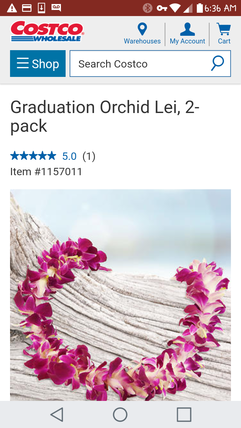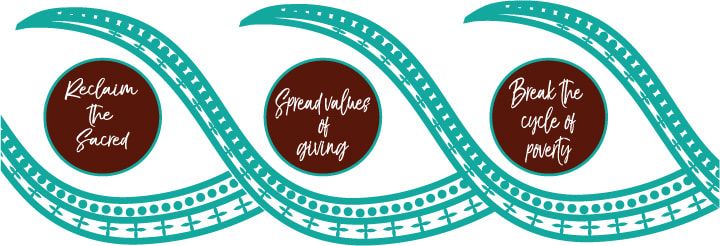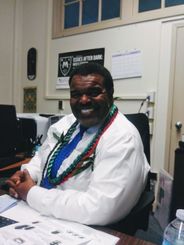|
“It is time to create things for ourselves, to create established standards of excellence that match those of our ancestors.” Dr. Epeli Hau’ofa I, like many of my generation, were moved by Dr. Hau’ofa’s words. For me personally, I received it as a call to action and in the Spring of 2015 I entered business school with the goal of creating jobs for my community. All I had was a vague and rudimentary understanding of economics, a lived experience of witnessing all of my communities – social and ecological fall into decline. I had then a 5 month baby girl on my hip and enough confidence to know that folks like myself who were action-oriented and could function from an integral place, with capabilities to simultaneously see the past, present and have foresight into the future and, could see the granular and the larger landscape, and feel the spirit that permeates throughout, could manifest what was needed in this world to fundamentally change it. What I bore through this business school process was an idea to build a business around the one relic that could bring seemingly different groups of Pacific Islanders together for economic development. What was born was The Lei Company. The Lei Company was a start but if we wanted to reach that standard of excellence that Dr. Hau’ofa is eluding to, our enterprise would need to be communal in its ownership and it’s reciprocity of responsibilities and benefits and the enterprise would also need to be regenerative to all beings and our ecosystems. In June 2017, The Lei Company became The Lei Company Cooperative, Inc. a California Worker-Owned Cooperative Corporation organized under California Cooperative Law. The Lei Company Cooperative, Inc is the first of its kind. It is the first Pacific Islander Worker-Owned Cooperative in the continental United States. It is the first worker-owned cooperative to be led by a Pacific Islander woman and dedicated to the weaving arts and leis, lei making and lei makers. It is also the very first cooperative this far east in our local community of East Oakland. East Oakland is a section of the City of Oakland which is home to one-third of all Pacific Islanders that live in our county, where 68% of people live 2x below the federal poverty level and almost half of households pay 50% or more of their income towards housing. Our cooperative will not only play a significant role in changing and uplifting the lives of our members but we will play a role in the larger economic development of our local communities. In August we were able to crowdsource a 0% interest loan from Kiva US. Kiva US is one of the premier leaders in democratizing capital for businesses like ours who not only want to be financially successful but also want to do good in the world and are often locked out of traditional financing. Kiva allowed us access to a low barrier loan that helps us to not only provide the much needed scaffolding to build up our business credit but to later on access more traditional business financing. It also provides us with a loving community and opportunities to collaborate with other business owners on a global scale. In September, just three months after our conversion to a worker-owned cooperative and because of our Kiva loan, we were able to secure a founding anchor institution – The Oakland Unified School District (OUSD), and became their official lei vendors. Now Oakland students, their families, school faculty and staff throughout the district and the district’s affiliated charter schools can support our cooperative by pre-ordering their leis for promotion activities and graduations from us. This is in addition to all the schools and colleges we serviced last graduation season and thus increasing our projected production and revenues by the thousands-fold. Having an anchor institution like OUSD is vital to the survival and flourishing of worker-owned cooperatives like ours. Anchor institutions are “institutions that consciously and strategically apply their long-term, place-based economic power, in combination with their human and intellectual resources, to better the welfare of the community in which they reside.”(Democracy Collaborative) We are grateful to have the schools and colleges in Oakland be our founding anchor institution and we look forward to expanding and serving more school districts and college systems throughout the country. Cooperatives with anchor institutions have a far greater chance of accomplishing their financial goals, and thus also having the resources to meet their sacred, social and ecosystem driven missions. Ti Leaf Cord and Marcus Garvey Solidarity Leis worn by Michael Moore, Procure Officer Oakland Unified School District / Photo Credit: T. Lacsado What lays next for us this fall and winter is the onboarding of our founding cooperative members through a partnership with Roots of Success whose environmental literacy work-force curriculum will be tailored to meet our needs as a Pacific Islander worker-owned cooperative. Because lei making is at the heart an ecological endeavor, our cooperative must have a foundation in ecology and ecosystem stewardship. We are continuing our capital raising efforts through private investment under the tutelage of capital raising maven Jenny Kassan, author of Raise Capital On Your Own Terms: How to Fund Your Business Without Selling Your Soul.
We are also searching for a home in Oakland, a place to set up production. We hope to find a home by March 2018. It has been a struggle as commercial rents in the Bay Area are very high, even for temporary spaces. We are hopeful that we’ll find a home soon as we’re making real estate connections and folks are really excited and supportive about our story and what we’re trying to accomplish that I’m confident something will manifest. At the time of this writing, it is Thanksgiving eve. In solidarity we reframe the holiday in service and honor to our Indigenous Native American relations. We are grateful for their lead in showing the world how to reclaim what’s sacred in service to self-determination and community wealth building. May you enjoy the time with your family this holiday season. Please stay tuned. Our next post will be introducing our cooperative officers, advisory board, founding investors and the 2 international fair trade partnerships we have entered. Yours in honoring our ancestors, Tiffany
15 Comments
 People ask me all the time “Why did you start the Lei Company?” My go to response is always, “It wasn’t an easy decision but why not?” At the point that I bought an orchid lei imported from Thailand from a Latino man in front of the Paramount Theater, a candy lei from an an African American grandma at a Berkeley High graduation or a cheap plastic lei from the Dollar Store so I could make a quick money lei for a birthday, I thought, "why not?" To those sellers leis are just a commodity to sell for a quick buck during the graduation season. They have the gist of what it means to give lei as a congratulatory act but they do not imbue lei with intention, with the heart and mana that is at the essence of every garland at production and throughout our supply chain. I have always been in the business of co-creating the spaces to bring awareness to the pains of Pacific Islanders and so it was a natural progression for me to want bring to every sentient being and our living Universe not only our pains, but our joys. Marie A. McDonald, a Smithsonian lauded Master Lei Maker from the Big Island of Hawai’i said it best: "Leis are a fragile art form, and giving lei represents love, affection, respect and honor. Leis exemplify arms entwined about another person's neck - mother and child, lover and beloved, friend and friend. And the memory lasts forever." Those whose view of lei as just a commodity can never be stewards of such a delicate art form. My offering to lei’s stewardship is in it’s evolution here in diaspora for future generations. That is where my heart lies. In mana, it lies with community wealth building. In 2013, the National Coalition for Asian Pacific Community Development reported that in the wake of the recession, from 2007-2011, Pacific Islander poverty in the United States increased 60%, 2.4 times greater than the average national increase of 27%. Entrepreneurship is an integral piece of the equation for any community to build wealth. How fortunate are we as Pacific Islanders to have a widely accepted expression of our love so woven into the Western mainstream. At the time of this writing, graduation season is sailing full steam ahead. Graduation is a retail season that in the United States brings in on average $5.4B. And like our health and education statistics, the statistics on lei sales are not disaggregated within the floral industry nor compiled on any level that I can easily find. My gut tells me there are no statistics on the economic impact of leis to the graduation retail industry. We are also embarking on summer and here in the continental United States that means the proliferation of kitschy Hawaiian Luau themed parties with fake floral leis galore. I don’t think I need to go into any great detail here about the offensiveness of party store Hawaiian luau decorations but like graduations, it presents us with an interesting ocean of entrepreneurial and economic possibilities to navigate. Currently in the continental United States, outside of the floral industry, leis are sold as a street product. Pop-up stands selling purple orchid leis imported not from Hawai’i but directly from Thailand line the pathway to graduation ceremonies while Pacific Islander Aunties and Grandma’s send youth into the crowds to sell leis hanging from their arms, their beautiful creations not equitably priced at the level of their true value. How can we as Pacific Islanders disrupt these industries and reclaim and re-imbue the sacredness and mana of our art forms for the benefit of Pacific Islander artisans? How can we use this opportunity to increase our community wealth through entrepreneurship? And last but not least, how can we regenerate our society’s cultural commons and raise the value of the lei by educating consumers and evolving the art form and our artisans. My offering as a starting place is The Lei Company. Sources: http://nationalcapacd.org/spotlight-asian-american-and-pacific-islander-poverty-demographic-profile https://nrf.com/resources/consumer-data/graduation |
AuthorTiffany Rose Naputi Lacsado is Founder and CEO of The Lei Company Cooperative, Inc. an Oakland California based lei making worker owned cooperative. She has an Integral MBA in Creative and Regenerative Enterprise from Meridian University and holds a Bachelor’s degree in Social Change & Activism with an emphasis on Social Entrepreneurship from New College of California. She resides in Oakland, California and is a mom of 3 six and under. She has founded technology and agricultural micro-lending social enterprises internationally in Calapan City and Mansalay, Oriental Mindoro, Philippines. Her holding company the Tiffany Lacsado Companies also includes 2 other startups -The Rancho Las Lacsado Retreat Center in Yucca Arizona and The Kula Exchange, a company that aims to cultivate the business education methodologies, technological, and logistical solutions for artisans from island nations to increase their GDP by participating in the diaspora and global export art market. ArchivesCategories |



 RSS Feed
RSS Feed